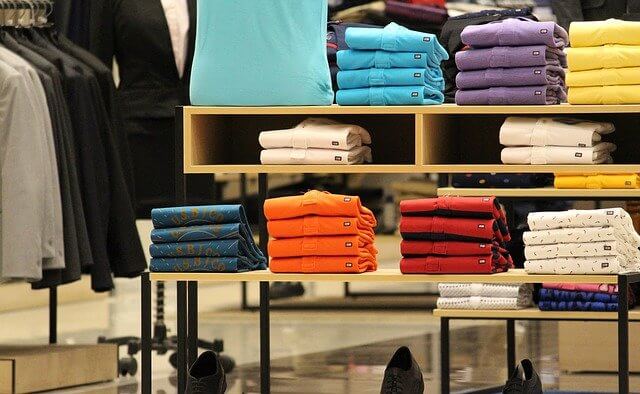
Used clothes can be recycled
How to deal with used clothes
According to survey statistics, billions of used clothes are thrown into the wastebasket every year. The reuse rate is less than 1%. Most of the used clothes have not been reprocessed or harmless treatment. It’s hard to donate due to lacking donation channels, asymmetric information, and special requirements for used clothes . Obviously, only by donation to deal with used clothes is impossible.
In fact, used clothes are renewable resources, and they can be recycled. In addition to being used for clothes,used clothes can also be used as new materials after treatment.
Some experts appeal to the departments to issue strict standards for the transaction of used clothes. Used clothes should be recycled, cleaned, and disinfected by legal and standardized organizations, and then consent to list, to turn the circulation of used clothes from underground to ground.
Develop the reuse technology of used clothes to maximize the recycling of used clothes and form a complete industrial chain. used clothes should not be colossal consumer waste. Still, they should become valuable wealth that brings commercial benefits to people by recycling.
Faced with piles of used clothes, many people don’t know what to do
The update speed of clothes is faster and faster. How to deal with used garments has become a headache for citizens. Used clothes that don’t wear keep waste space. Throwing them away is not only a pity but also pollutes the environment; at the same time, it’s also a colossal waste. I want to sell it, but no one wants it. Want to donate them to others but can’t find a way. Faced with piles of used clothes, many people don’t know what to do.
Improving recycling technology and regulating second-hand transactions
How to reuse resources is a global problem. How about other countries and to solve it? In fact, Recycling used clothes is a good way. In addition to the use of clothes, used clothes can also using as new materials after treatment.
Such as interior materials for cars or building materials, fillers for plush toys, raw materials for the paper industry, etc. Some products can be transformed into homogeneous materials, such as rags, mops, insoles, etc. It is understood that as early as 1978, Switzerland established a textile recycling used clothing company and utilize old clothes.
Improving recycling technology in countries
Belgium has a population of only more than 10 million, but the total recycling of used clothes reaches 15000 tons every year. The recycling of old clothes in Japan has received a positive response. 87% of them have been renovated and donated to refugees through UNHCR, 3% are used for electrical generation, and 10% are processed into thermal insulation materials.
In addition, many years ago, a Japanese recycled clothing supplier developed a garment fabric made of recycled used clothes, called “ECO CIRCLE,” a renewable polyester fiber fabric used by an old outdoor product in the US.
In addition to reprocessing and utilization, buying used clothes is also very popular in European and American markets. There mature used clothes markets in Europe, the United States, Japan, and other countries. Those with good quality have priority to enter the second-hand market.
British used clothes have different meanings
In the UK, buying used clothes is quietly becoming a popular consumption mode. Regardless of age and identity, proponents are not attracted by low prices but from the unique cultural interpretation of “used clothes,” which makes “wearing used clothes” derived into an embodiment of life attitude and lifestyle.
Walking into a British antique clothing store is like entering a current fashion history. Each used clothes reflect the unique fashion style of different times. Today, with the “wind of environmental protection” blowing vigorously, “reused” used clothes have become a model students in the British fashion industry. The used clothes store has also become the ideal coordinate of “guilt-free” fashion consumption.
Charity
In addition to the interpretation of “nostalgia” and “environmental protection,” the used clothes in the hearts of British people are also closely related to “charity.” There is a special kind of shop in the streets, which has become a unique scenery in Britain. Usually, their storefront is not significant, and the goods dominated by clothes,crowding with a small space.
They have their own special management mode, and most of the staff except the main person in charge are volunteers. Most of these stores are invested and established by charitable organizations. They are open in cities and towns all over the UK in the form of chain stores. These stores have a unified Name: Charity shop.
Boutiques
In the charity store, the donated used clothes have to go through a strict “interview.” Volunteers will check and screen each piece of clothing, pick out those new and fashionable “boutiques,” carefully steam iron, re-mark the price and hang it in the store, waiting for the new owner to take it back to the beautiful wardrobe.
Although the clothes that “failed” in the interview can not label and hung in the store, they are also a source of income for charity stores. “After losing the election, they were put into green plastic bags by volunteers, selling to exceptional companies to recycle clothing fabrics by weight, and then transported to a more giant clothing fabric transfer station. After reclassification, distributing the clothes with good quality and style to developing countries by weight, starting a new journey.
Conclusion
Used clothes can be recycled. The re-transformation of old clothes is good for the environment. It is also a hot item in some countries, such as Africa, USA, UK. Their demand for second-hand clothes is different. Especially in Africa, second-hand clothes are more popular in Africa because of the low level of economic ability and the rapid renewal of clothes.
